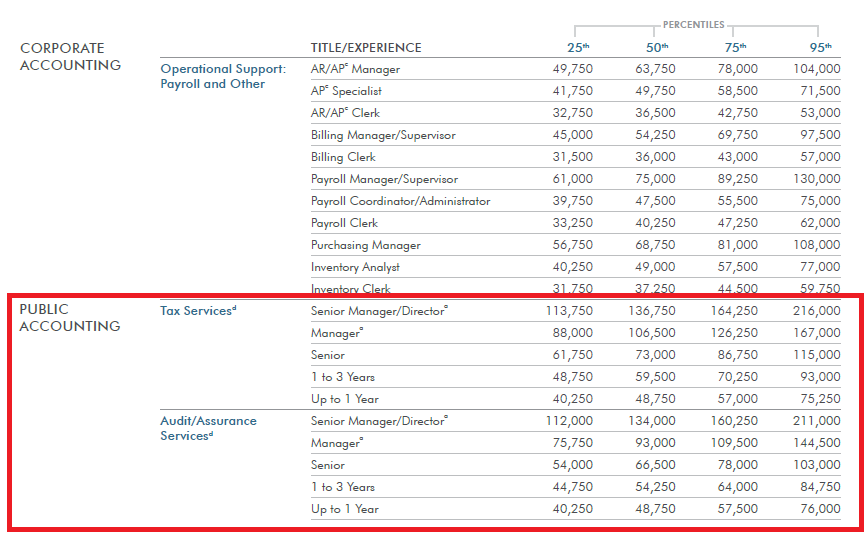
You might be curious about the requirements for a career as a financial consultant. Make sure you research the qualifications, work environment and salary of your ideal candidate before you submit a job application. Monster.com offers a free service that lets you post your job posting. These are some ideas to help you create a compelling description of your financial consulting job. Good descriptions will help you attract qualified candidates.
Qualifications
A bachelor's degree in finance, or a closely related field, is the minimum qualification for financial consulting positions. In addition, certification is generally helpful in enhancing career prospects. The master's degree will strengthen your resume and show that you are an academic learner. If you'd like to join this growing profession, read on to learn more about the various degrees and credentials required. The qualifications required for financial consulting jobs can vary between firms so be sure to verify the job description.

Salary
Financial consultants address issues related to taxes and accounting as well as risk management and monetary operations. They are also called management consultants. Their roles are covered by larger audit firms. They use financial data in order to provide solutions to clients and make plans to improve business processes. This means that the average salary of a Financial Consultant varies from one city to another. These five jobs are more lucrative than the national average.
Work environment
While a career as a financial advisor can be very rewarding, it is also full of challenges. As a financial advisor, you will have to analyze data and create plans for clients. You'll also need to develop critical thinking skills so you can evaluate a client's financial situation and make suggestions for improvement. Financial consultants may also research different financial products and services to offer their clients. You will also need to be adept at networking.
Requirements
If you're interested in a career as a financial consultant, a bachelor's degree in finance or a related field is an excellent starting point. While you won't necessarily need to be licensed for selling securities, you might find that this can help your career prospects. Additionally, additional certifications can be obtained that may enhance your professional profile and improve your earning potential. You might consider taking an economics course to learn the basics of finance, depending on which type of financial consulting work you wish to pursue.

Salary range
The median annual salary for financial consultants was $66,580, according to the U.S. Bureau of Labor Statistics' May 2011 Occupational Employment Statistics Report. The lowest 25 percent of financial advisors earned $43,160 annually, while the highest 10% earned over $1118,880 per annum. Simply Hired reported in June 2012 that senior financial consultant salaries averaged $104,000. Consultants make their money by managing clients' assets and collecting fees to provide their services like financial planning.
FAQ
What qualifications are necessary to become a consultant
It is not enough to have an MBA degree. You must also have experience as a consultant. A minimum of two years' experience in consulting, training and/or advising a major company is necessary.
It is essential that you have experience working closely with senior management on strategic development projects. You will need to feel comfortable communicating ideas to clients and getting their support.
You will also need to pass a professional qualification test such as the Chartered Management Institute Certified Management Consultant certification (CMC).
Is it possible for a consulting business to be run from home?
Absolutely! This is something that many consultants do already.
Most freelancers work remotely using tools like Skype, Slack, Trello, Basecamp, and Dropbox. They may even create their own office space in order to take advantage of company perks.
Some freelancers prefer to work in cafes or libraries instead of in a traditional office environment.
And others choose to work from home because they enjoy being surrounded by their children.
While working remotely has its advantages, it also comes with some disadvantages. But if you love your job, it's definitely worth considering.
How much should a consultant charge?
It depends on your offering. If you are providing services for free, then there isn't any point in charging anything. However, if you are selling products or services, then you need to set prices based on value.
If you offer low-quality services then you don’t have anything for sale. Why should anyone pay for your services?
You may be able to ask for a higher price if you offer high-quality services. This is because people know the value that you provide. Also, clients who purchase multiple packages from your company may get discounts.
What can I expect of my consultant?
After you have selected your consultant, expect to hear from them within a few business days. They will request information about your company including its mission and goals, products, services, budget, and other pertinent details. Next, they'll provide a proposal describing the scope and estimated time frame, fees, deliverables or milestones, as well as an estimate of costs.
If everything is in order, then the parties will enter into a written contract. The type relationship between the two sides (e.g. employee-employer or independent contractor-employer) will dictate the terms of the contract.
If everything goes well, the consultant should start work immediately. S/he will have access to your internal documents and resources, and you'll have access to his/her skills and knowledge.
Don't think that consultants are experts. It takes time and practice to become an expert on any subject you consult. Your consultant should not assume that they know everything about you business.
Do I really need legal advice?
Yes! Yes. Many consultants will create contracts for clients without seeking legal advice. This can create problems down the line. For example, what happens if the client terminates the agreement before the consultant's completion date? What happens if the consultant doesn’t meet the deadlines specified in the contract.
Avoid potential legal problems by consulting a lawyer.
How did modern consulting come to be?
The first consultants were accountants who helped companies manage their finances. Because they were skilled in managing financial information, they became "accounting consulting". This role quickly expanded to include human resource management.
The French word for "to advice" was the inspiration behind the term "consultant." This was used by businessmen as a way to describe someone who could provide guidance on running an organization. Even today, many business owners still use "consultant" when referring to professional advisors.
Statistics
- On average, your program increases the sales team's performance by 33%. (consultingsuccess.com)
- 67% of consultants start their consulting businesses after quitting their jobs, while 33% start while they're still at their jobs. (consultingsuccess.com)
- So, if you help your clients increase their sales by 33%, then use a word like “revolution” instead of “increase.” (consultingsuccess.com)
- Over 50% of consultants get their first consulting client through a referral from their network. (consultingsuccess.com)
- My 10 years of experience and 6-step program have helped over 20 clients boost their sales by an average of 33% in 6 months. (consultingsuccess.com)
External Links
How To
What's a typical day like for a Consultant?
Your work type will determine the length of your day. You will be spending time researching, planning new ideas, meeting with clients, and creating reports.
Clients will often meet with you to discuss their problems. These meetings can be conducted over the phone, by email, face-to-face, or online.
You may also be asked to prepare proposals, which are documents outlining your ideas and plans for clients. You will need to discuss these proposals with a mentor or colleague before you present them to clients.
After all the planning and preparation, you will have to produce some content. For example, you could be writing articles, designing websites, creating videos, editing photos, or conducting interviews.
It depends on the project's scope, you might need to do some research to collect relevant statistics. It may be necessary to know how many customers are currently using your products or services.
After gathering enough information, you can present your findings to clients. Your findings can be presented orally or written.
Finally, you must follow up with clients after the initial consultation. You could phone them occasionally to check on things or send an email asking them to confirm that you have received their proposal.
This process takes time, but it's important to ensure that you stay focused and maintain good relationships with clients.